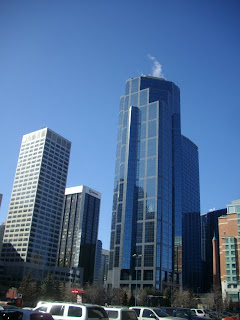The 50 Percent!
In the 2015 election the Liberals promised to legalize pot and reform the voting system. You might remember that they fulfilled one promise but sadly not the other.
Why did the Liberals fail to make the changes that would bring in this new age of legally high people having their vote account for something?
Well this vote counting thing can be complicated and by that I mean there are many different systems and to get a consensus regarding one or the other is not easy or so it's been implied by the Liberal party in regard to this last try and here we are going into another election and no one is mentioning voting reform.
The system we choose to count votes will address half tlhe problem the other half is our small population for our countries large geographic size.
To illuminate this size problem we have the case of Nunavut.
It is the largest territory in Canada with an area roughly the size of France and guess how many seats this territory gets, 3 maybe 5, it's as large as Alberta and Alberta gets 34 seats so Nunavut get's ....ONE! Yes just one representitive for the whole territory! The Yukon and NWT are in the same boat with 1 each.
Yes the riding or constituency is based on population each riding gets a seat and with a population of only 39,000 Nunavut gets one seat. In contrast the nations smallest province is P.E.I. with a population of under 160,000 and a land area smaller than the Greater Toronto Area it gets 7 seats.
So as I have pointed out voting reform has to be addressed by first changing the way we award seats and also grapple with the way we vote. FPTP came from having only two parties and it tends to make it hard for new parties to get any traction. Is there a simple answer to this vote counting conundrum? Is it possible to make every voter feel as though their vote counts for something?
When I looked at the options and there are a few, the question in my mind was "is this better" and in the end was there a "best" practice?
It depends on what you are looking for. Personally I like the idea of a transferable vote and to vote separtely for the leader of the country and your MP.
In the end the number of different voting systems are limited only by one's imagination. There's an excellent series on Youtube that gives you a look at these different systems. Check it out here https://youtu.be/s7tWHJfhiyo?si=nxakwHpB5h1IVz7C
There are some who will roll their eyes at the suggestion of change. Perhaps these folk think that our system is the only way countries elect representation in government.
Of course there are different systems for different countries and pretty much all of them are political party systems but this idea of having a registered group of parties to go into competition during an election does not have to be. it's concieveable to have a consensus system where there is no race for the top spot during an election. Think about your civic elections where you vote for an alderperson who doesn't have a "party" flag to stand under. Where could we find a working example of a government larger than a city who uses such a system?
That would be Nunivut and the NWT.
There are no parties because they have a consensus government. This means you vote for your local representitive and that is all. Then the representitives sit in the legislator and vote for the leader of the governnment. The ministers of the government can be chosen by the leader or by the members of the legislative congress or assembly.
This underlines the difficulty in finding a "system" that "works" we just have to imagine and it could be.
We could look at the ways of other countries like Switzerland and change the role and the method of selecting the Prime Minister or run-off elections as France does again the possibilities are endless but the life or usefulness of FPTP is finite.






Comments
Post a Comment